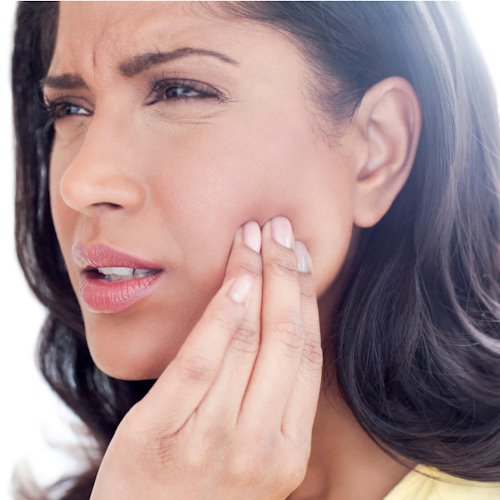Bite Misalignment & TMJ

Highlights
- How Portschy Dental Partners of Marietta is the best choice for treating bite misalignment and TMJ disorders.
- Understanding of bite misalignment and how it affects jaw function and health.
- The correlation between bite misalignment and TMJ disorders and the symptoms that could indicate these conditions.
- The variety of causes that can lead to TMJ disorders and how bite misalignment plays a role.
- Treatment options for bite misalignment and TMJ, such as orthodontics and aligners.
- The importance of professional assessment for correct diagnosis and treatment planning.
Are you experiencing discomfort or pain in your jaw? Do you have trouble opening or closing your mouth? These symptoms could be signs of a bite misalignment and temporomandibular joint (TMJ) disorder. At Portschy Dental Partners of Marietta, we understand the connection between bite misalignment and TMJ and are here to help.
First, let’s understand what bite misalignment is. Bite misalignment, malocclusion, occurs when the upper and lower teeth do not fit together properly. This can be caused by various factors such as genetics, tooth loss, or dental trauma. When the bite is misaligned, it can put excessive pressure on the TMJ, leading to TMJ disorders.
TMJ disorders refer to a group of conditions that affect the TMJ, which is the joint that connects your jawbone to your skull. These disorders can cause pain, stiffness, and difficulty in jaw movement. They can also result in headaches, earaches, and neck and shoulder pain.
There is a strong link between bite misalignment and TMJ disorders. When the bite is misaligned, it can cause the TMJ to become strained and inflamed. Over time, this can lead to the development of TMJ disorders. It is important to address bite misalignment issues to prevent or alleviate TMJ problems.
Common symptoms of bite misalignment and TMJ disorders include jaw pain, clicking or popping sounds when opening or closing the mouth, difficulty chewing, and even lockjaw. If you are experiencing any of these symptoms, it is essential to seek professional dental care.
There are several causes of bite misalignment and TMJ disorders. As mentioned earlier, genetics, tooth loss, and dental trauma can contribute to bite misalignment. Other factors such as teeth grinding, stress and arthritis can also play a role in developing TMJ disorders.
Diagnosing bite misalignment and TMJ involves thoroughly examining your teeth, jaw, and bite. Our experienced dental team at Portschy Dental Partners of Marietta will assess your condition and recommend the most appropriate treatment options.
Treatment options for bite misalignment and TMJ disorders may include orthodontic treatment, such as braces or clear aligners, to correct the alignment of your teeth.
FAQs
What symptoms indicate I might have bite misalignment or TMJ disorder?
Symptoms of bite misalignment and TMJ disorders include jaw pain, difficulty chewing, clicking or popping sounds when moving the mouth, and sometimes lockjaw.
How can bite misalignment affect my overall health?
Bite misalignment can put excessive pressure on your jaw joints (TMJ), leading to pain, dysfunction, and related headaches, earaches, and neck discomfort.
What causes bite misalignment and TMJ disorders?
Causes include genetics, tooth loss, dental trauma, stress, teeth grinding, and arthritis, which can all contribute to these conditions.
Why is it important to address symptoms of TMJ disorders early?
Early intervention helps prevent further complications, reduces pain, and improves jaw function and oral health.
How can I schedule an appointment for bite misalignment and TMJ issues?
You can schedule an appointment by calling us at (770) 439-4141 or visiting our office in Marietta for a professional evaluation and treatment plan.
